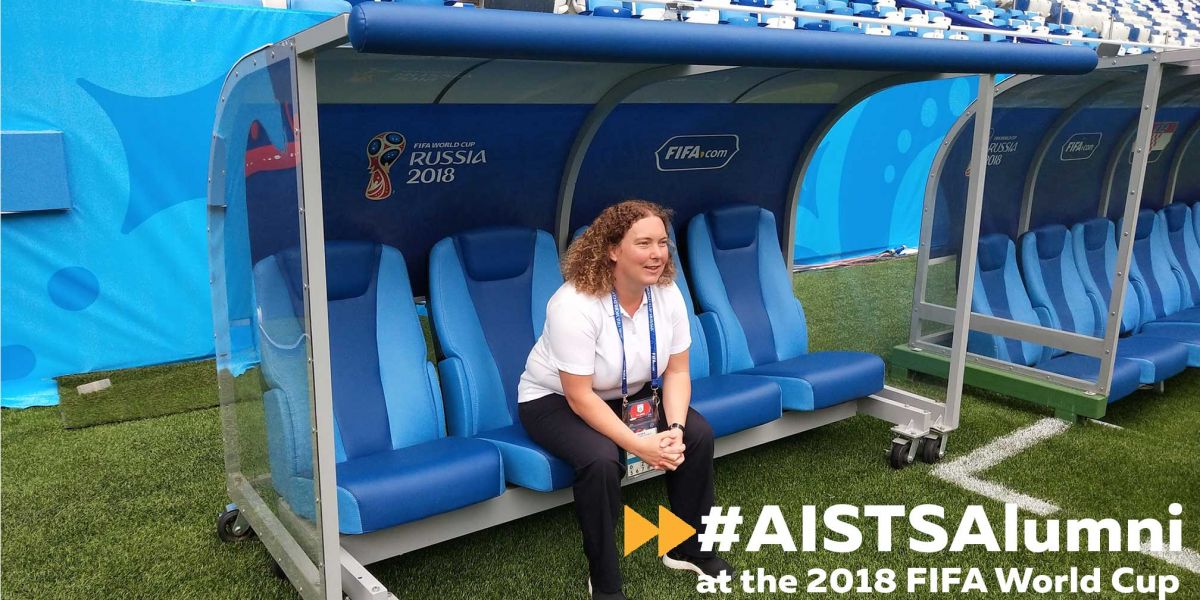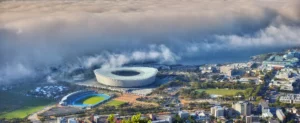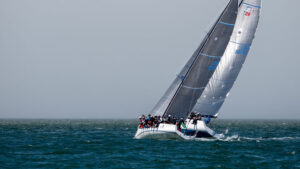
GERALDINE HEINEN – AISTS ALUMNI AT THE 2018 FIFA WORLD CUP
The 2018 FIFA World Cup has kicked off in a spectacular way and runs through until the 15th of July. The event will host 32 national teams, with 64 matches being played in 12 different venues, located in 11 cities. There is nothing quite like a World Cup and our second AISTS Alumni interview is with Geraldine Heinen, class of 2013, from Belgium.
After completing her studies with AISTS Geraldine did a 4 months internship at the ITU (International Triathlon Union) and then found a job at FIH (International Hockey Federation) as Event Coordinator. After 3 years there, Geraldine decided to leave this position and re-orientate her career into development, with the hope of working for a sport that she had more interest in. While looking for the right job Geraldine volunteered at the UEFA Women’s Euro in the Netherlands, and a few months later found her right job at FIFA.
AISTS – So what is your current role with FIFA?
I have been working 7 months now within the Member Associations (MA) division and specifically for the region of Africa and Caribbean. Our main purpose is to work closely with the MA’s and help them to use their FIFA Funds, through the FIFA Forward Programme, in the best possible way.
These funds are available for development projects. The applications can cover projects of different areas, as capacity building, competition, infrastructure, travel, equipment, etc. Basically, anything they want as long as it is in line with their strategic plan and that it helps to grow the game of football in their country.
Even though I am more focused on development now, I still use a lot my expertise from event management, as we are always meeting our MA’s through diverse events, development conferences, strategic workshops, inaugurations of our regional offices, summits etc.
AISTS – What is your job in regard to the 2018 World Cup?
I am the Hospitality Venue Manager and am based at the stadium of Kaliningrad. My role is to manage the implementation of all hospitality programmes. This means that I must keep track, watch closely, check continually and control quality at all levels. My task is to guarantee the delivery of FIFA’s obligations towards hospitality guests in general, and especially the Commercial Affiliates of FIFA (FIFA Partners, FIFA World Cup Sponsors and Regional Supporters, licensees, and broadcasters).
My key areas of intervention are parking, guest access, signage, facilities, catering, staff & accreditation, entertainment & guest services, safety & security, branding & marketing, ticketing.

AISTS – Wow, so it sounds like you are very busy. How is it all going?
It is going well. I arrived on the 3rd of June in Moscow for two intense days of training with all the Hospitality Venue Managers and then we all took our flights to our various stadiums. I arrived on the 5th and our first game was on the 16th of June. That gave us a lot of time to get familiar with the duties. Things are intense and it is not always easy to get in touch with people from all the areas but we are very well supported by everybody around us, our LOC counterparts, the venue managers, the general coordinator, the people at the HQ, etc.
AISTS – What do you most enjoy about your role at such a major event as the World Cup?
Each event has its own atmosphere. If you are not involved, you do not exactly know what it feels like. I am very excited about this one because it will be my first FIFA World Cup. I am also happy because it is my first time in Russia and in this kind of position. I know there will be many new things to discover and learn and I am sure that I will create new connections with many people. My last day of duty will be during the England – Belgium game. As a Belgian, I think that it will be very intense and emotional.
It is years now that FIFA has been focusing on this event and for me, it is a great opportunity to see it in real and to see the results of all the hard work. In our last staff briefing, one of our Senior Directors told us that “the World Cup is huge, it is a Monster!” Which made me a little scared but also very excited to be part of it.

AISTS – Do you have any advice for those looking at the next step in their sports administration career and wanting to get into events?
Yes, I have 3 points.
1. Volunteer and get experience
I have a long list in my Major Event’s Portfolio now. Four of them were as a volunteer. My main advice would be to never close any doors. If you don’t try you don’t know and it might lead you to a job one day. If not, I am sure that it will add value to your own sports experience, and in your own personal life, as most of the time it is the experience of a lifetime.
Even though I am working in development now, I have been called to work for the World Cup. This is a great feeling as I can see that I am connecting all the dots from my previous experiences.
2. Never stop learning
To work at the World Cup is the tip of the iceberg. My other advice would be to keep working hard, not sleep on our past glories and never stop learning. Something important in sports administration is to share knowledge and experience with others. It is by talking to people that most of the time you find out about new opportunities and your network is the one that is going the help you to find some shortcuts.
3. Never give up
Last year I wanted to get a paid position at the UEFA Women’s Euro. Unfortunately, it did not go this way, my only offer was a volunteer position. Never the less I do not regret it. I like to think that it is thanks to this experience that I got the job at FIFA afterwards.





